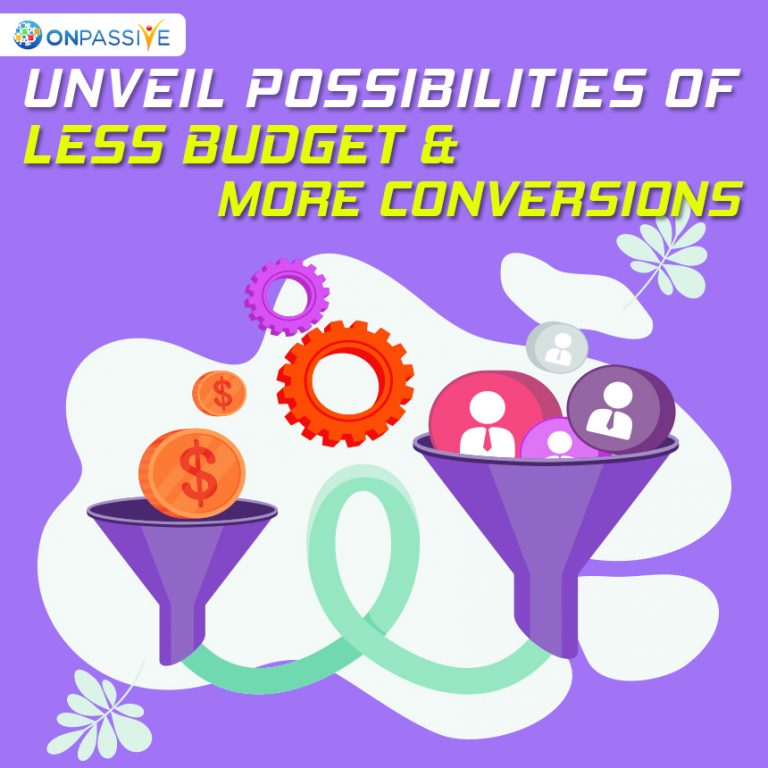
Ads are getting creative day by day, be it a 20 – 30 seconds commercial advertisement or a small post on your Instagram feed. We see catchy and innovative ways of ads from numerous brands trying to get as many visitors as they can. Today, a small Facebook ad can drive more customers to your business than by spending millions on ambassador advertising.
So what is the trick to having a ground-breaking yet budget-friendly ad campaign to grab your customers’ attention?
Let us first understand what does marketing budget stand for?
What are Marketing Expenses?
There are a large chunk of marketing executives have almost no background in finance. This can be a major problem in building the best budgeting plan for digital advertising because, as a marketing manager, you are in charge of a part of the company’s budget. And a major part of this job role is to spend wisely.
Marketing expenses are simply the costs of promoting your company. Traditionally, this will include printing and distributing physical documentation, print, and on-screen advertisement placements, transportation, and disbursing employees’ salaries.
You still have all the same costs today, plus the ever-growing expense of digital ads. Companies are spending exorbitant amount on marketing for Facebook and Google.
List of Typical Advertising Costs
With digital marketing continually evolving and growth hacking becoming the new norm, we now have distinct costs under the marketing umbrella.
These include:
- Branding: Building your Visual Identity and Tone of the Brand
- Website and Maintenance Fees
- Extensive PR Campaigns
- Automation Tools for Digital Advertising
- Authentic Business cards
- Agency and Consultancy Costs
- Promoting and BuildingDigital Advertising Strategy
To marketing executives in digital marketing, the greatest obstacle is keeping on top of all these specific payments. Missing details and overlooking an ongoing subscription or running over the allocated budget on a major campaign, is very common.
But just because its normal does not mean it’s pardoned! A reputed company cannot endure working like this. And how do you efficiently track and manage all of those costs?
How to Efficiently Manage Marketing Budget?
1. Create Clear Marketing Goals
Setting goals is essential, and without it, the marketing campaign will eventually fail. Creating a goal is the first step to develop any budget. When you have identified precisely what you want to accomplish, you get a better idea of where to invest money. When a particular initiative or event helps you achieve these targets, it requires financial support.
2. Choose Marketing Strategies Wisely
A marketing strategy draws a roadmap for you and your team to carry out well-planned projects that you will be testing against a specified target. Not only does this process help you target the right audience with the correct information, but it helps you understand the impact of digital advertising marketing projects on your organization’s growth.
3. Embark on your Budget
Create a budget template to upgrade and track your budget regularly to make sure you are moving on the right path. When you’ve got a tight budget template outlined, it’s the time to bridge the gaps and plan actual spending. You can use the budget recommendation tools online when you are constrained by budget and unable to increase your budget, reducing bids, and pausing keywords can help plan your budget and move ahead on your digital marketing journey.
4. Make Decisions Based on the Data
You will be able to analyze your marketing expenditures and understand which rewards are benefiting and which are not. It could free you from tackling larger ventures in the final quarter, or enhance some of the tactics that have worked best. The point here is you are better prepared to handle marketing expenses efficiently by making the financial data accessible to your team.
5. Building an Efficient Team
Consider building media planning decisions with your team more frequently by switching into a weekly or bi-weekly planning process for better digital advertising performance. Communicate with media outlets regularly. With fewer historical data available in the current situation, it’s crucial to remain on top of conditions in various markets and keep track of what works and what doesn’t.
Staying flexible and adjusting to circumstances as needed would allow marketers to make the most of budgets, which can diminish as the crisis unfolds. Although a limited budget will undoubtedly bring its fair share of challenges to your business digital advertising strategy efforts, operating within a set of constraints and restrictions can ultimately be of great benefit to your company.
When you learn to do more with less, your company continues to expand, and the team will be able to continue budgeting and marketing effectively.



Teleki Viktória
4 years ago